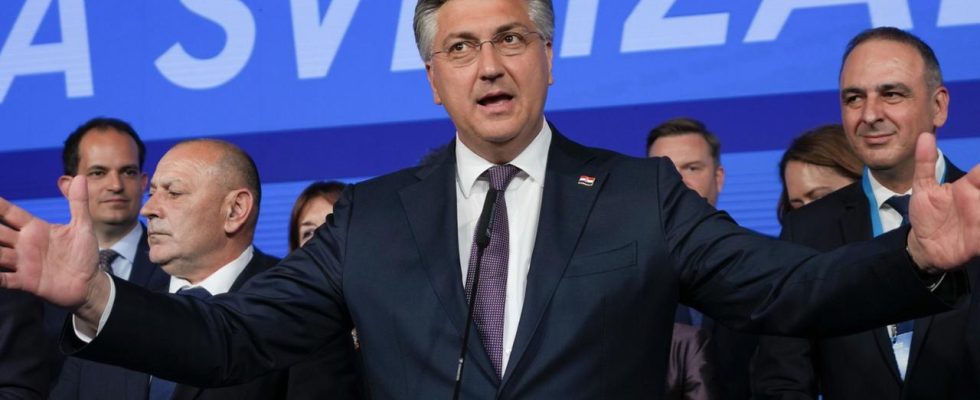In Croatia, the conservative ruling party HDZ clearly won the parliamentary election. According to preliminary results, however, it is dependent on support from other parties. The EU member state is now facing a phase of political instability.
According to official information, Prime Minister Andrej Plenkovic’s ruling conservative HDZ party won the parliamentary elections in Croatia.
The HDZ won 60 of the 151 seats in parliament, as the state election commission announced late in the evening after almost 95 percent of the votes were counted. The conservatives would therefore have to rely on the support of right-wing parties to stay in power.
According to the information, President Zoran Milanovic’s Social Democratic SDP came in second place with 42 mandates. The right-wing extremist homeland movement was by far the third strongest force, with 14 seats. She is likely to become a kingmaker in future coalition talks.
The HDZ’s narrow victory is likely to usher in a period of political instability in the EU member state. The major parties will try to forge alliances with other factions, even if their political views differ.
record at voter turnout
Plenkovic gave a victory speech to supporters that evening. “From tomorrow morning we will begin to form a new parliamentary majority to form our third government,” he explained, and: “I want to congratulate the other parties that were defeated by the HDZ.”
Voter turnout was more than 50 percent – a record. The HDZ and the SDP must now negotiate with smaller partners on the right and left to form a coalition.
The election outcome is also decisive for the country’s policy towards Ukraine and its position within the EU. Plenkovic supports Ukraine, but the opposition does not.
Election campaign marked by bitter rivalry
The election campaign focused on the bitter rivalry between the country’s president and prime minister. After Milanovic called the election, he surprisingly announced his candidacy for prime minister. The Constitutional Court intervened and declared that Milanovic must first resign as president in order to run for a seat in parliament. However, Milanovic ignored this, remained in office and continued his election campaign.
Other campaign issues included the highest inflation rate in the eurozone, labor shortages, illegal migration and reports of widespread corruption. Milanovic has accused the HDZ of “massive theft” of state funds. Plenkovic, who has been in power since 2016, rejects this and warned that Milanovic could bring EU and NATO member Croatia closer to Russia as prime minister.
Since Croatia declared independence from the former Yugoslavia in 1991, the HDZ has largely been in power. In 2013, the Balkan country became the youngest member of the EU, and last year it also joined the Schengen area and the Eurozone.

